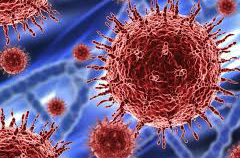Unfortunately the Coronavirus has invaded every aspect of our lives and turned it around drastically in a matter of days. In this environment, it is important to make decisions based on facts rather than speculation.
What is a virus?
A virus is a microscopical biological entity that reproduces inside cells of a living host. Once they infect the cells of the host, it reproduces at a high rate causing all sorts of trouble and sometimes out numbering your immune system counteractions. Virus are not considered “life” per se. Scientist consider that viruses are at the “edge” of life because they carry DNA (or RNA). Viruses can’t reproduce alone, they always need the host to reproduce.
 (1) What should I worry about the Coronavirus?
(1) What should I worry about the Coronavirus?
You should worry that you might get it.
The Center for Decease Control (CDC) says that the Coronavirus is transmitted (1) between people who are in close contact with one another (within about 6 feet) or (2) through respiratory droplets produced when an infected person coughs or sneezes. These droplets can land in the mouths or noses of people who are nearby or possibly be inhaled into the lungs.
Now, what is remarkable about the Coronavirus, is that it seems to survive, host-less for many hours. Studies show that it survives in the air for up to 3 hours, on copper for up to 4 hours, or on cardboard up to 24 hours and on plastic and stainless steel up to 2 to 3 days. This survivability outside the host makes the Coronavirus extremely contagious and why you are seeing such wild and fast spread worldwide.
(2) What should I not worry about the Coronavirus?
You should not worry that you will die of the Coronavirus—it is unlikely.
The World Health Organization (WHO) estimates the mortality rate to be at 3.5%. While this rate is low, this is not, however, your regular flu, which has mortality rates of less than one percent. Dr. Anthony Fauci, the respected leader of the National Institute of Allergy and Infectious Diseases said in an interview that the Coronavirus is about “10 times more lethal” than the flu.
The lethality rate goes down depending on the age group. For example, if you are between 30-39 years old, your chance of dying of Coronavirus are 2 in 1000. Mortality rate is also associated to underlying conditions. In other words, if you are a healthy 30 year old without an underlying condition your chances may be even lower. On the other hand, people over the age of 70 do have to be very careful as they are particularly vulnerable to this rapidly spreading respiratory disease.

Additionally, not all Coronavirus effects are the same. The impact on people is different. Out of all people affected by the Coronavirus, roughly 19% are critical cases, meaning they develop pneumonia and require critical care in a hospital.
(3) What to do?
WHO recommends the following:
- Wash your hands frequently.
- Maintain social distancing.
- Avoid touching eyes, nose and mouth.
- Practice respiratory hygiene.
- If you have fever, cough and difficulty breathing, seek medical care early.
- Stay informed.
Sources:
https://www.livescience.com/how-long-coronavirus-last-surfaces.html
https://www.cdc.gov/coronavirus/2019-ncov/about/transmission.html
https://www.worldometers.info/coronavirus/coronavirus-death-rate/#who-03-03-20
https://www.worldometers.info/coronavirus/coronavirus-age-sex-demographics/
http://www.cidrap.umn.edu/news-perspective/2020/02/study-72000-covid-19-patients-finds-23-death-rate


